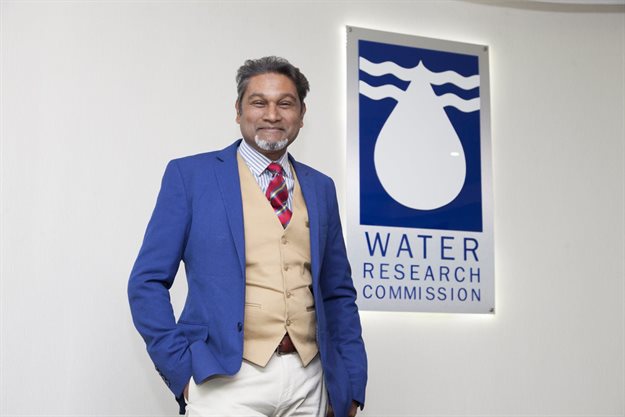
Top stories






More news

















Logistics & Transport
Uganda plans new rail link to Tanzania for mineral export boost










The first was that it saw the conclusion of the most globally consuming transitions of power in the United States ever. The storming of the US Capitol in Washington on 6 January sent shockwaves around the world. It was an event that had huge significance in many directions. To many, this was the physical expression of a desire by some to return America, and the world, to a time characterised by isolationism, racial segregation (White supremacy) and a high-carbon industrial model. It is alarming how this movement found allies all over the world, in spite of being punctuated by the reality bites of Black Lives Matter, the MeToo movement and a groundswell of new evidence demonstrating the negative impacts of climate change. But, fourteen days later, President Biden was inaugurated and reminded the world that for him and Vice President Kamala Harris, the core ingredients of the recipe for the America recovery was the very opposite of these objectives.
Six days later, 26 January, saw Davos Virtual – the 2021 meeting of the World Economic Forum. There was the acknowledgement that the world has been on a destructive trajectory to date with the climate crisis being the uppermost long-term risk in the 2021 WEF Global Risk Register. President Ramaphosa, in his WEF address, emphasised that “...the world is at a crossroads… These challenges – from poverty to the destruction of our environment, from conflict to inequality, from illiteracy to famine – are all the results of our action and, too often, our inaction”.
WEF founder Klaus Schwab, supported by managing director Saadia Zahini, introduced the theme of the much-needed 'Great Reset' - the need to right-track the global economy and how it operates in order to achieve equitable global development. The WEF showed a preference for the model of 'stakeholder capitalism' supported by the international Business Council toolkit in the form of environmental, social and governance (ESG) metrics as the performance indicators of the new global economy.
We have already been witnessing an important shift. For example, retail investors applying ESG principles to at least a quarter of their investment portfolios went from 48% in 2017 to 75% in 2019. In 2018, sustainable investment accounted for $14.1tn in Europe and $12tn in the US with the latter projected to increase to $35tn by 2025. This would go a long way to achieve the banner headline goal of the meeting of the four Ps – People, Plant, Prosperity and the Principle of Governance. South Africans must be allowed a trip down nostalgia lane as we remember that the first time the first three Ps (People, Plant, Prosperity) made global headlines was at the 2002 World Summit on Sustainable Development (WSSD) in Johannesburg.
Alongside WEF in January was the Climate Adaptation Summit. It was attended by 22 heads of state, 50 ministers and leaders in all major stakeholder groups. It set itself up as a key start toward the Climate Change COP26 (Glasgow, November 2021). The in-between stepping stones include the Global Climate Leaders Summit (USA), the Climate and Development Forum (UK), the G7 and the G20.
We have to move to a low-carbon development trajectory, and we have to work as hard, if not harder, at adaptation as we do on mitigation - a point led by UN secretary-general Antonio Guterres pushing for a shift in funding prioritisation with the goal of 50% of climate funds for adaptation and resilience by 2024. The launch of the Adaptation Action Coalition by UK’s PM Boris Johnson added impetus to host PM Mark Rutte of the Netherlands' introduction of the Adaptation Action Agenda at the beginning of the summit. Additionally, the launch of the 1000 Cities Adapt Now global programme and the Coalition for Climate Resilient Investment provide invaluable pillars to build this agenda on.
President Ramaphosa, in the 2021 State of the Nation Address, talked to the priorities of economic recovery with inclusive growth and job creation. As an important pointer, taking heed of the important January developments, he also announced that the recently appointed Presidential Commission on Climate Change Coordination would have its inaugural sitting in February 2021. This may be a pivotal development in absorbing the momentum of the Great Reset.
As difficult as the Year of the (masked) Rat was, it definitely ended on a high. As President Xi emphasised in the 2021 Chinese New Year Address, the pandemic has given us much to revere, not least remembering that, "Greatness is forged in the ordinary. Heroes come from everyday people." After relating the Chinese “stories of spring”, he went on to emphasise, "We are not alone on the Great Way and the whole world is one family. After a year of hardship, we can understand more than ever the significance of a (global) community with a shared vision for mankind.”
They say that the ox is characterised by diligence, dependability, determination and strength. These are exactly the attributes required to build on these pillars toward a landmark year in the quest for a low-carbon green sustainable and equitable future within which we see a point of inflection toward the more rapid realisation of the Sustainable Development Goals in this Year of the Ox.